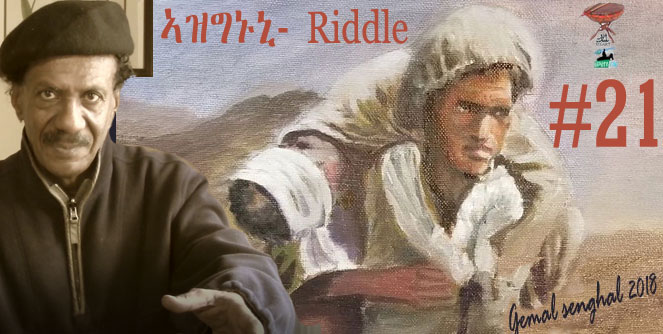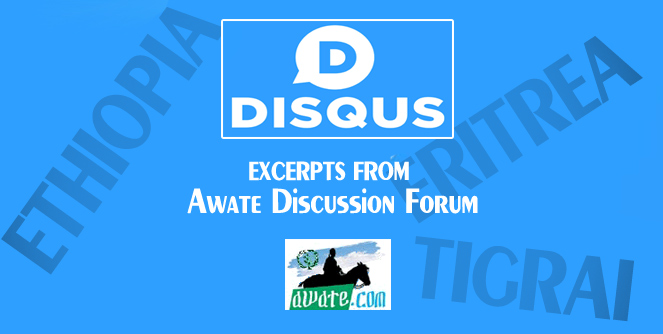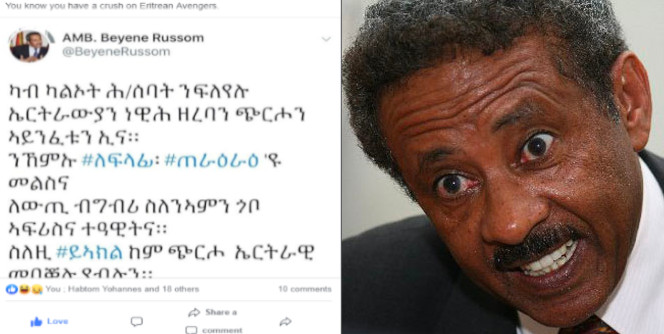Eritrean Opposition: All Are Secular (II)
And I say that [in the title], because, if anyone reads the Charter of the Eritrean Democratic Alliance, he will discover that all the organizations that signed it, whether Islamists, nationality-based or otherwise, are in fact secular because the Charter confirms the separation of religion from the state, and that citizenship is the basis of rights and duties.
So that we do not get lost in terminologies, which are in fact imported, secularism doesn’t mean [a state] opposed to religion but it means a state whose basis is legislation and worldly laws—in other words, the separation of religion from the state. That was a reaction to the intervention of the Catholic Church in Europe and its blessing of kings and emperors as God’s shadow on earth, and they should not be violated. Therefore, the reaction was violent and sometimes irrational—and that was manifested specially in France, Italy, Germany and Spain. But in the Nordic countries—Norway, Sweden and Iceland—[the state] still maintains some ties and relations with the religious establishment. But paradoxically, in all states—Nordic—some of them even have budgets allocated within their general budgets for the construction of mosques for Muslims!
We come now to the organizations of the Alliance and what was witnessed in the recent lineup, coalitions within the umbrella of the EDA. What must be confirmed in the beginning is that the phenomenon accompanied the Alliance since its inception:
* Refer to a meeting in Frankfurt, Germany in 2004 [the coming together of] a threesome; then its transformation into foursome in London; and then, in 2005, becoming the six-party at the stage of the Democratic Alliance.
* Division within the alliance in 2007
* Now, what is the significance and meaning of the existing blocs?
As mentioned [above], the phenomenon is not new—and the reasons vary from one stage to another—some are due to external factors and others are the making their owners, either because of short-sightedness or lack of experience in giving priority to the transient and the temporal at the expense of and permanent and the solid.
Does the incidents that happened represent pluralistic vision and approach which offer the possibility of integration and convergence, or is it a split on the issues of change and its objectives?
* Optimists say that what happened was just the re-arranging of the household from within—meaning the re-allocation of rooms within a house to the occupants in accordance with closeness and level of communication with each other. Still it is one roof and it offers cover to the entire house (the Alliance) and is still surrounded by one fence: the Charter.
* Pessimists say that what happened and what is still happening might lead to an organizational isolation and hinders the possibility of positive interaction and construction. What happened is that a dam stood up and is separating the residents of that house and is not allowing any contact or interaction. That is an insulation wall set up to prevent future collapses and splits!
Is what happened a nostalgia for the past [from those] that do not want to end or is it an outlook to the future which does not seem to be arriving?
What does this mean? It means that the EDA charter is no longer a guarantee, and that some consider it an excuse that masks the true intentions of each party.
This situation will remain a reality and each party will try to make progress for its coalition or its front: diplomatic and informational.
But what about the larger goal, change?
[Change] requires a vision that goes beyond the current relations within coalitions and accommodates new regional and international developments and changes which are happening around us—and before everything else, the weakness and isolation that the regime has reached.
What should our vision be in the twenty-first century, and what guides our movement and our actions regionally and internationally?
First: it is a must to get out of the rigid mould of the past and to communicate with the regional and global surroundings.
Second: The era of closed views that emanates from fossilized beliefs and intellect that herald ready solution is over. The era of ideologies that claimed to possess the whole truth is over.
Third: the tactics of the cold war and confrontations of violent wars between the major powers have retreated and those forces are searching for grounds of agreement to avoid the issues of contention.
Economic and cultural rivalry, and the acceptance of [the idea of] peaceful coexistence, all of that under the influence and the use of advanced technologies, and the degree of its possession, and the ability to deal with it, determines the status of each country in the world.
Fourth: At the domestic level, as Eritreans, we have to ask: Can we move forward, or we are doomed to remain outside the margins? Do we freeze down or interact with our surroundings? [Do we] achieve stability and harmony, or fall into division and conflict as has happened to some people in the region?
Communication and interaction with [our] surrounding is an issue that is essential for us to catch up with scientific advancement, but that issue requires the existence of guiding principles and firm objectives and impregnable immunity—if not, the situation transforms itself in into chaos and plundering and jumping towards the unknown.
It is a must that we follow up and study the experiences of others and benefit from it. It is a must that we deal with a critical mind while retaining our cultural peculiarity and our political individuality and embark from our social reality.
Agreement on the constants and dialogue about the variables, overcoming organizational sectarianism and giving our prior loyalty to the homeland and the people and to look forward to the future of action, and factors shaping attitudes.
History is made by those who read and learn from the past and by those who own the tools of the future and who are able to use it wisely and effectively for the benefit of the nation.
Ramadan Kareem and Many Returns. This is the month of worship, faith, repentance and forgiveness.
Omar Jabir, has been a part of the Eritrean movement for independence and democratization since he was 15. As a member of the Eritrean Liberation Movement (ELM/Haraka/Mahber Showate), and later the Eritrean Liberation Front (ELF), where he was instrumental in the formation of the General Union of Eritrean Students (GUES), and his eventual return to Eritrea following independence in 1991, and re-exile, Omar Jabir’s journey has been as contoured as that of Eritrea’s trek for self-actualization. Now residing in Australia, Omar Jabir is a respected presence in Eritrean websites that cater to Arabic-reading audiences. His articles are often educational, insightful and timely. The article which follows is the second of 5 articles explains the coalitions and blocks within the Eritrean Democratic Alliance. The series appeared on Alnahda1.8.com, Awate.com is translating it to English believing it would serve a wider audience. Notes that appear in brackets [ ], and headings were added by awate.com for ease of reading and understanding.




Awate Forum